The Alchemist, Mockingbird & Art of War: Know why HR leaders can’t miss these gems!

The HR is more than just policies, payroll and processes— they are people strategists. They understand human motivations, handle conflicts and shape workplace cultures that bring out the best in individuals and teams. While there are countless books on HR and leadership, some of the most valuable insights come from unexpected sources—fiction, psychology, philosophy and even ancient military strategy.
Great HR leaders are great storytellers, helping employees craft their career journeys. So, let’s step outside the HR bookshelf and explore five books that offer profound lessons on leadership, empathy, decision-making and resilience.
1. To Kill a Mockingbird by Harper Lee
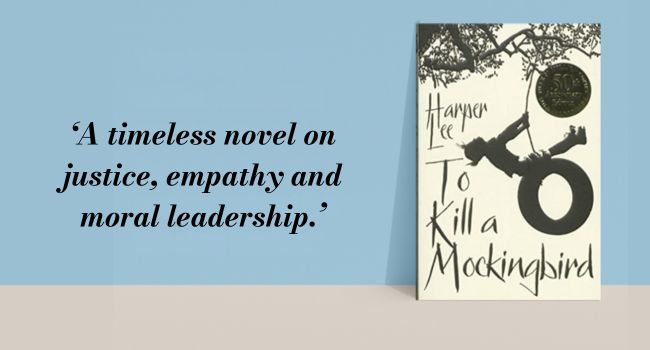
In a racially divided town in 1930s America, young Scout Finch watches as her father, Atticus, takes on an unwinnable case—defending a Black man accused of a crime he didn’t commit. Atticus is unwavering in his pursuit of justice, even when facing hostility from his own community. He teaches Scout one of life’s greatest lessons: “You never really understand a person until you consider things from his point of view.”
For HR leaders, this novel is more than just a story of race and justice—it’s a guide to navigating ethical dilemmas in the workplace. Just like Atticus, HR professionals often stand at the crossroads of fairness and company interests. They must balance employee concerns with business realities while ensuring that integrity isn’t compromised. Bias—whether conscious or unconscious—exists in every organisation, and HR plays a crucial role in addressing it.
Key Takeaway: Empathy isn’t just a soft skill—it’s a leadership superpower. HR professionals must ensure that fairness and inclusion are not just words on a policy document but principles woven into the organisation’s DNA.
2. The Alchemist by Paulo Coelho
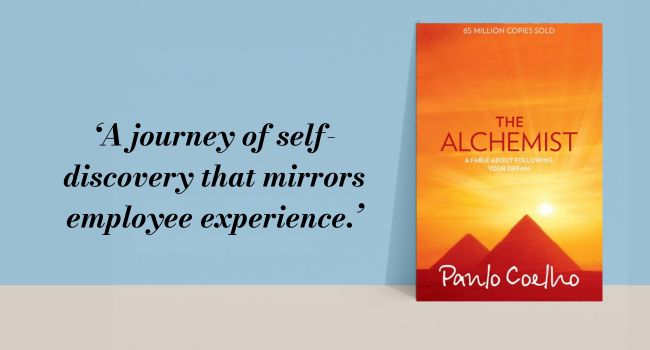
Santiago, a young shepherd, dreams of a treasure hidden far from home. Along his journey, he meets a king, a thief, an alchemist, and others who teach him valuable lessons about following his dreams. In the end, Santiago realises that the treasure he was searching for had been within him all along—it wasn’t just gold, but the wisdom and growth gained from his journey.
HR professionals, in many ways, are like the guides Santiago meets. They help employees discover their own paths—whether through career development programmes, mentorship or leadership training. People don’t just work for salaries; they work for fulfilment, growth, and a sense of purpose. An organisation that understands this retains its best talent and fosters a culture where employees feel valued.
Key Takeaway: HR isn’t just about hiring and firing; it’s about helping people find their ‘Personal Legend’—their purpose within the organisation. Employees who see meaning in their work are more engaged and committed.
3. Thinking, Fast and Slow by Daniel Kahneman
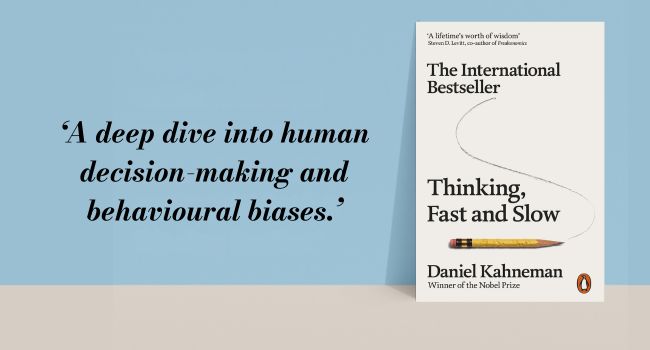
Imagine you’re hiring for a senior leadership role. Two candidates stand before you. One went to a prestigious university, while the other has an unconventional career path. Your brain instinctively leans toward the first, assuming they must be more capable. But is that really true, or is it just a cognitive bias at play?
Nobel Prize-winning psychologist Daniel Kahneman explains how our minds operate in two systems—one that makes quick, instinctive decisions (fast thinking), and another that processes information more deliberately (slow thinking). HR professionals deal with these biases every day, from hiring and promotions to performance evaluations. Understanding how people think and make decisions allows HR leaders to build fairer, more effective talent management strategies.
Key Takeaway: HR needs to be the slow thinker in the room—challenging biases, encouraging rational decision-making, and ensuring that people-related choices are made with fairness, not just instinct.
4. The Art of War by Sun Tzu
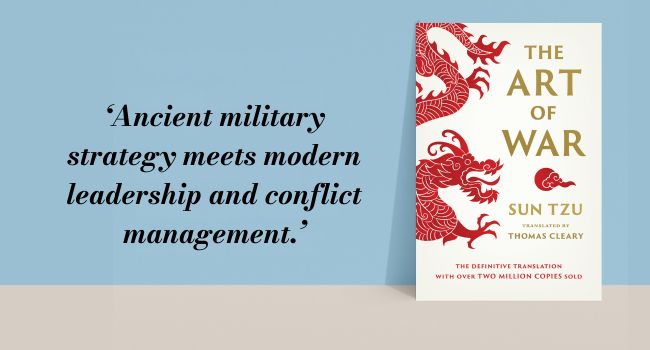
Sun Tzu’s The Art of War may seem like an unlikely read for HR professionals, but its wisdom extends far beyond the battlefield. One of its core teachings is: ‘The supreme art of war is to subdue the enemy without fighting.’ In an HR context, this isn’t about ‘enemies’ but about navigating workplace conflicts, managing power dynamics, and influencing change without creating resistance.
Picture an organisation undergoing a massive restructuring. Employees are anxious, managers are resistant and leadership is under pressure. HR professionals often serve as the bridge, strategically communicating changes, addressing concerns and ensuring minimal disruption. Sun Tzu’s principles—understanding the terrain (workplace culture), knowing your troops (employees), and choosing battles wisely (prioritising initiatives)—are all directly applicable to HR.
Key Takeaway: Conflict in the workplace is inevitable, but great HR leaders don’t just manage it—they anticipate and diffuse it strategically. Influence is often more powerful than authority.
5. Man’s Search for Meaning by Viktor E. Frankl
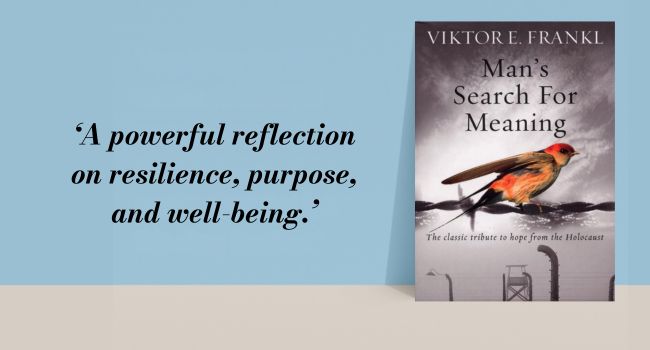
Viktor Frankl, a psychiatrist and Holocaust survivor, writes about his experiences in concentration camps where he observed a profound truth: people who found meaning—even in suffering—were more likely to survive. Frankl’s philosophy, known as logotherapy, suggests that the pursuit of meaning, rather than happiness, is what truly drives human beings.
In the modern workplace, HR professionals are at the forefront of employee wellbeing. Burnout, disengagement and mental health struggles are real challenges. Frankl’s insights serve as a reminder that employees aren’t just looking for perks or promotions; they seek meaning in their work. HR’s role is to help cultivate an environment where people feel valued, recognised and aligned with a greater purpose.
Key Takeaway: A purpose-driven workplace is a resilient workplace. Employees who find meaning in their work are more engaged, motivated and emotionally invested.
Final Thoughts: Learning from unexpected places
Some of the greatest HR lessons aren’t found in HR books. They’re hidden in classic literature, psychology, philosophy, and even military strategy. As HR professionals, broadening our reading list helps us become better leaders—ones who understand people, inspire teams, and build workplaces that are not just productive, but meaningful.












